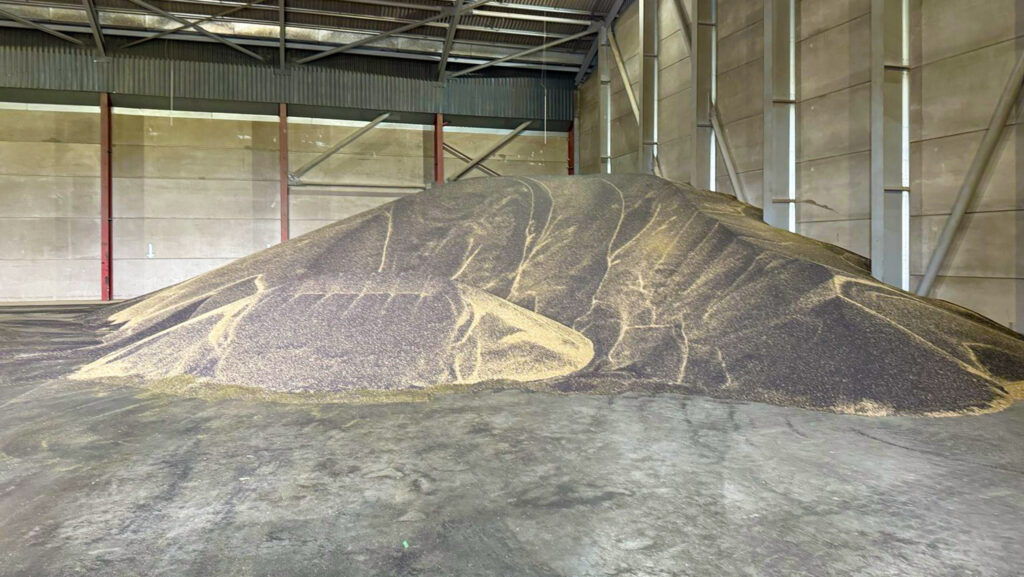Harvest 24: Final oilseed rape harvest after testing season for grower
 © James Peck
© James Peck An oilseed rape grower received better than expected yields, but won’t be planting the crop next season, after heavy losses to cabbage stem flea beetle.
James Peck of PX Farms, who crops over 5050ha of owned, contracted and rented land in Lincolnshire, Cambridgeshire, Bedfordshire and Hertfordshire, cut 45ha of Ambassador oilseed rape, at moisture levels of between 11 and 14%, last Thursday (11 July), using four new Claas Lexion 8700 with 12m headers.
See also: Trials farm suffers massive financial hit from wet weather
Yields are so far better than expected at 3.1t/ha dried weight, with 44.3% oil content and 1.8 to 2.3% admixture.
This is close to the 3.67t/ha 20-year average, but less than the budgeted 2.75t/ha, as half of the original 490ha of oilseed rape, drilled between 10 and 20 August, was ripped up in October.
This was due to establishment issues caused by cabbage stem flea beetle, which meant that September redrilled areas also failed.
The oilseed rape will be sold off the combine, as there will be around 760t, compared to the 1,500t budgeted, at the beginning of the season.
Due to these significant losses and the high cost of growing oilseed rape, James has decided not to include it in next season’s rotation.
Written-off areas which had received propyzamide were replanted with Mascani winter oats and Isobel spring oats, which look well, apart from an area where the pre-drill glyphosate failed to work.
Mustard was planted on former oilseed rape land which had not been sprayed with propyzamide. It has established well and is destined for Colemans.
James also expects to harvest 17,000t of Crusoe and Skyfall Group 1 milling wheat. However, he is concerned about the potential quality of his milling wheats due to the lack of sunlight they have received.

